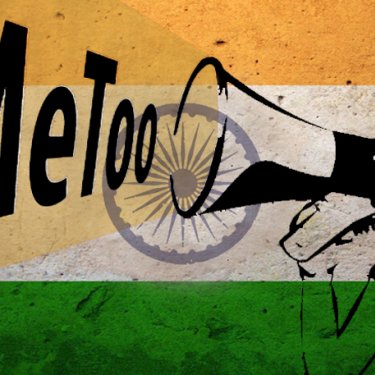#MeToo wave sweeps Indian media, but sanctions are slow in coming

Reporters Without Borders (RSF) hails the courage of the journalists responsible for the emergence of a #MeToo movement against sexual harassment in the Indian media. Immediate concrete responses are now needed to the cases of harassment that have been exposed, both responses from the courts and responses within news organizations.
The wave has been growing inexorably for more than two weeks and was triggered by a series of tweets by the journalist Sandhya Menon in which she said she was sexually harassed ten years by K.R. Srinivas, her superior at The Times of India in Hyderabad.
Menon said she complained to people in the human resources department but they took no action other than to report the complaint to Srinivas himself, thereby violating the confidentiality code that should be the rule. The victim was ignored while her alleged aggressor was promoted to chief editor at the Hyderabad bureau. Until Menon revealed all on Twitter on 5 October.
The effect was explosive because it turned out she was not the only one. Seven of her female colleagues have now also accused Srinivas of unwanted touching and sending obscene messages. And it triggered a flood of similar accusations, some supported by screenshots, against other sexual predators in the Indian media – accusations that have pushed several of them to resign.
The #MeToo movement reached a new height on 8 October, when another woman journalist, Priya Ramani, named the superior who, she said, had harassed her sexually. It was Mobashar Jawed Akbar, a former editor of such prestigious newspapers as The Telegraph and The Asian Age, who had subsequently left journalism and become minister of state for external affairs.
After around 20 other women made similar accusations against him, he resigned from the government on 17 October in order to defend himself against these claims, which he denies. The same day, he filed a defamation suit against Ramani, his first accuser.
Complete impunity
“It is high time to end the climate of complete impunity that surrounds cases of sexual harassment of women journalists in India,” said Daniel Bastard, the head of RSF’s Asia-Pacific desk. “It took considerable courage on the part of the women to denounce the behaviour of their superiors, and the complaints that have been made must be taken seriously by the courts.
“Similarly, it is urgent and fundamental for news organizations to establish credible mechanisms which enable victims to report cases of sexual aggression. and which then lead to appropriate sanctions against those responsible. The culture of impunity must change.”
India’s 2013 law on sexual harassment of women in the workplace provides for the creation of a committee within each company to receive complaints. But few media outlets have set up such committees and, when they exist, their members are usually appointed by the management, which undermines their independence and the transparency with which complaints are registered.
Major taboo
There are countless cases of women journalists being fired after reporting sexual harassment. They include Rina Mukherjee, who was fired from The Statesman, and Anita Shukla, a reporter for the Mumbai Navbharat Times who was fired in June 2016, just one month after complaining about her editor’s predatory behaviour.
The #MeToo wave sweeping the India media, which has highlighted a major taboo in Indian society, is largely limited to women journalists from urban backgrounds who work for English-language media. The wave has barely touched Asian-language media, as women journalists in the south and northeast of the country have pointed out.
Sexual harassment is nonetheless just one of the many problems to which women journalists are constantly exposed in India, as RSF revealed in a recent report.
India is ranked 138th out of 180 countries in RSF’s 2018 World Press Freedom Index.



